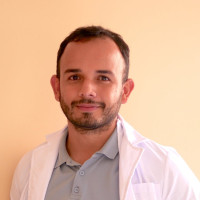Medical Treatment & Drug Development
Pandemics & Infectious Diseases
Antimicrobials, Antibiotics & Drug Resistances
Bacteria & Other Microorganisms
Post-Doctoral Fellowships
Germany
Development of novel antibiotics to overcome multi-drug resistant bacteria: Elongation factor P and the virulence pathway
She is particularly interested in one specific factor, called EF-P, that helps build proteins and is necessary for our microscopic opponents to make us sick. In fact, all bacteria have EF-P, but it differs across species. This means that new antibiotics could be designed very precisely to block specifically tuberculosis, meningitis, or another bacterial disease, while leaving the healthy bacteria in our digestive system, for example, untouched. Dr. Starosta’s work so far has revealed the intimate details of EF-P: how it is produced and operates within bacterial cells. This is information that the development of new antibiotics could be built upon, as researchers take aim at these steps underlying bacterial infection. By helping us stay ahead of disease-causing bacteria, Agata’s research could well contribute to shortening hospital stays, decreasing treatment side effects and even curing potentially deadly infections, as she herself was once cured.
From Childhood Illness to Innovative Antibiotics
A New Angle On Antibiotics
The hunt for new antibiotics is in need of new targets. Instead of aiming to neutralize basic bacterial functions, Dr. Agata Starosta hopes to block their virulence, or ability to cause disease. Her lab has discovered a protein that is necessary for many bacteria to become pathogenic. By studying in detail the steps in this process, the structure of this new factor and how it operates with other molecules, her work could provide the basis for new drugs that attack these pathogens from a new angle.
To add or modify information on this page, please contact us at the following address: community.research@axa.com

Agata
STAROSTA
Institution
Ludwig-Maximilians-Universität München
Country
Germany
Nationality
German
Related articles
Medical Treatment & Drug Development
Terresterial Biodiversity
Agriculture, Crops & Soil Health
Biotech- and Nanotechnology
Insects & Microorganisms
Vaccines
Post-Doctoral Fellowship
Argentina
Harmless and Eco-Friendly Solution as an Alternative to Replace Synthetic Agrochemicals
Agrochemicals were introduced to protect crops from pests and enhance crop yields. However, they have become a long-standing concern due... Read more

Johan
RODRIGUEZ MELO
Instituto de Agrobiotecnología del Litoral
Mental Health & Neurology
Pandemics & Infectious Diseases
Women's Health
Covid-19
Mental Disorders, Anxiety & Depression
Pregnancy & Maternal Health
Neurodevelopmental Disorders
AXA Award
Spain
2020.08.31
The Effects of the COVID-19 Pandemic on the Mental Health of Mothers and Newborns
Early results are expected in less than 12 months and will help bridge a critical gap in research. Indeed, “in... Read more

Maria
FORASTER
